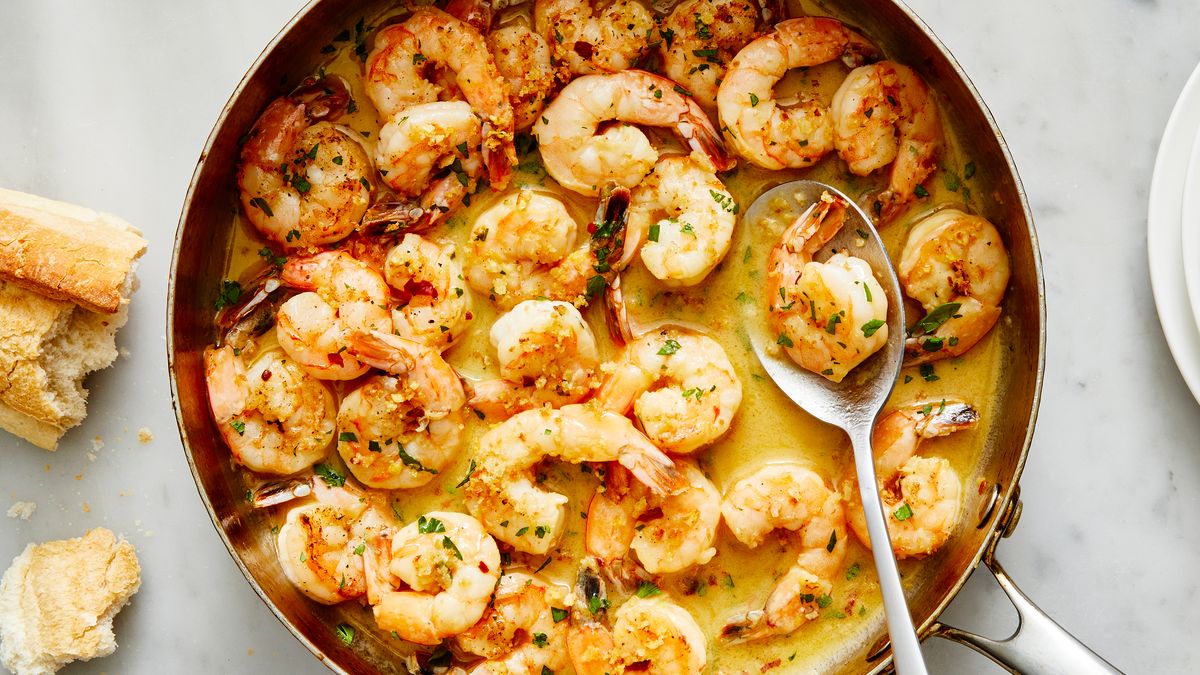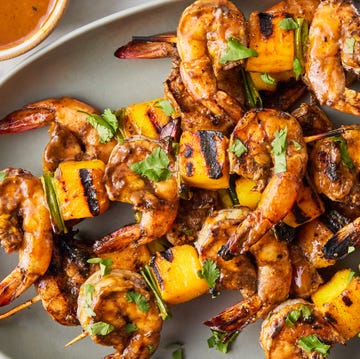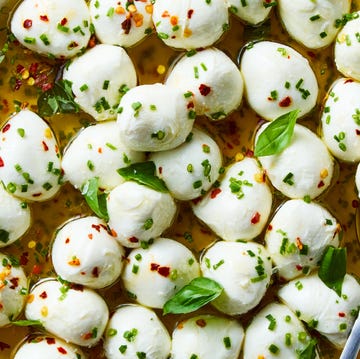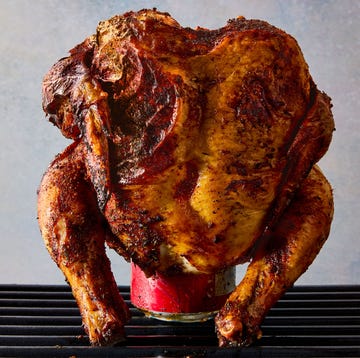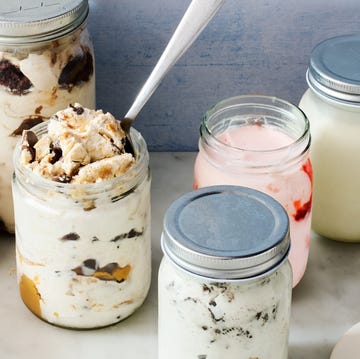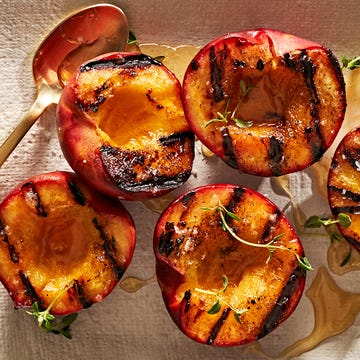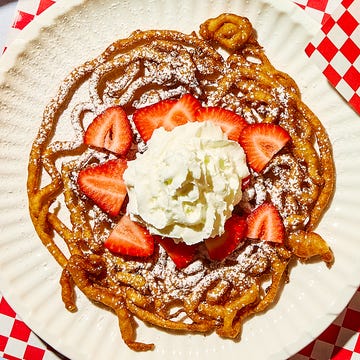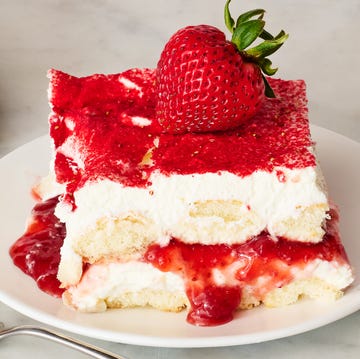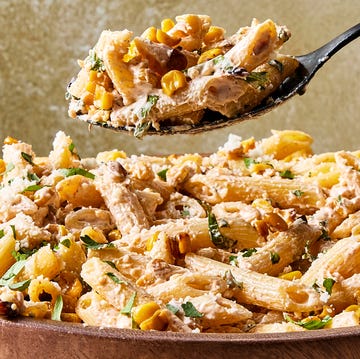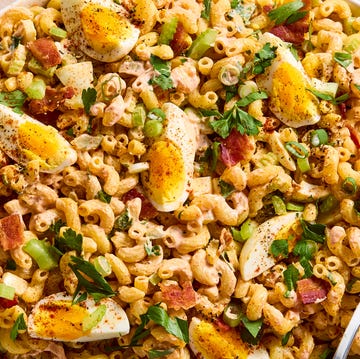It would be impossible for you to have not heard about coconut oil. Whether it's Dr. Oz himself or countless women's magazines spouting its latest health benefits, the slightly sweet oil has become a health darling. And while the jury is still out on just how good coconut oil is for you, it's definitely a winner when it comes to cooking. Here's what you need to know before you buy a jar.
1. IT'S KINDA PRICEY.
The one you want to cook with anyway. When shopping for coconut oil for cooking, make sure to get one labeled "virgin" or "extra virgin"; both of these types are unrefined and non-hydrogenated. Because of the labor put into producing them, they can run up to $15 a jar. (Avoid refined coconut oils, which have been stripped of important nutrients and cooking properties.)
2. DON'T BE FREAKED OUT IF IT'S SOLID.
When you reach for a jar at the store, there's a good chance the oil will be solid. Don't freak! The oil's high amount of saturated fat makes it solidify at room temperature. If it's stored in a room with a temperature above 76 degrees, the oil will melt. When sautéing with it, simply scoop a little in your hot skillet and it'll melt instantly. If you need it melted for, say, baking, simply zap the oil in a microwave for a few seconds.
3. IT'S NOT AS SWEET AS YOU THINK.
If you're a coconut oil virgin, you probably think anything that touches it will get infused with the cloying flavor of sweetened coconut flakes. Not true. Yes, coconut oil has a slightly sweet, kinda tropical vibe, but if you pair it with the right ingredients, it can greatly enhance the overall taste of the dish.
4. SOME CUISINES ARE A BETTER MATCH THAN OTHERS.
Chinese, Thai, and Indian cuisines are no-brainers when it comes to swapping in coconut oil. Fried rice, stir-fries, noodle dishes all pair amazingly well with its subtle sweetness. Mexican dishes work well, too. Italian not so much. A must-try that will totally surprise you: scrambled eggs. The flavors work magically together.
5. IT'S HIGH IN SATURATED FAT—BUT A BETTER KIND ... MAYBE.
In the '90s low-fat craze, coconut oil was villainized as tropical lard. And while it's true that its saturated fat content could make a Big Mac look good, proponents of coconut oil claim they do NOT measure up. Short-term studies suggest that the medium-chain fatty acids (such as lauric acid) that make up coconut oil don't raise cholesterol (LDL) in the same way long-chain fatty acids do. But until more long-term evidence surfaces, some doctors remain skeptical.
6. PEOPLE CLAIM IT DOES WONDERS FOR WEIGHT LOSS.
One way people eat coconut oil? A tablespoonful a day—to lose weight. The same group of proponents who claim lard and coconut oil make not a match also tend to think downing a spoonful of the stuff a day (solid or melted, doesn't matter) can have serious health benefits, from trimming your waistline to helping your skin glow (if you aren't ready to work coconut oil into your cooking routine, your beauty regimen is a great place to start). If taking a straight spoonful sounds too intense, blend it into a smoothie or spread it on a slice of toast with strawberry jam.
7. YOU CAN BAKE WITH IT.
Just as you would interchangeably swap canola oil with melted butter in baking recipes, you can do the same with coconut oil, which shines in baked goods thanks to its subtle sweetness. Banana breads and cupcakes are perfect places to start.
8. DRIZZLE IT.
You know a drizzle of nice olive oil can help perk up a bowl of pasta or salad, and a drizzle of coconut oil can have the same effect on roasted vegetables, toast, or, my personal favorite, hot popcorn.
Follow Delish on Instagram.





